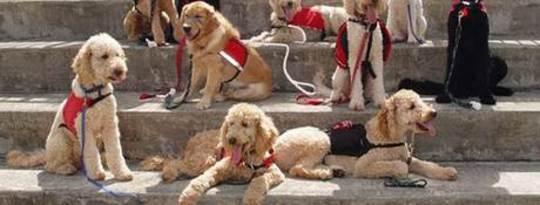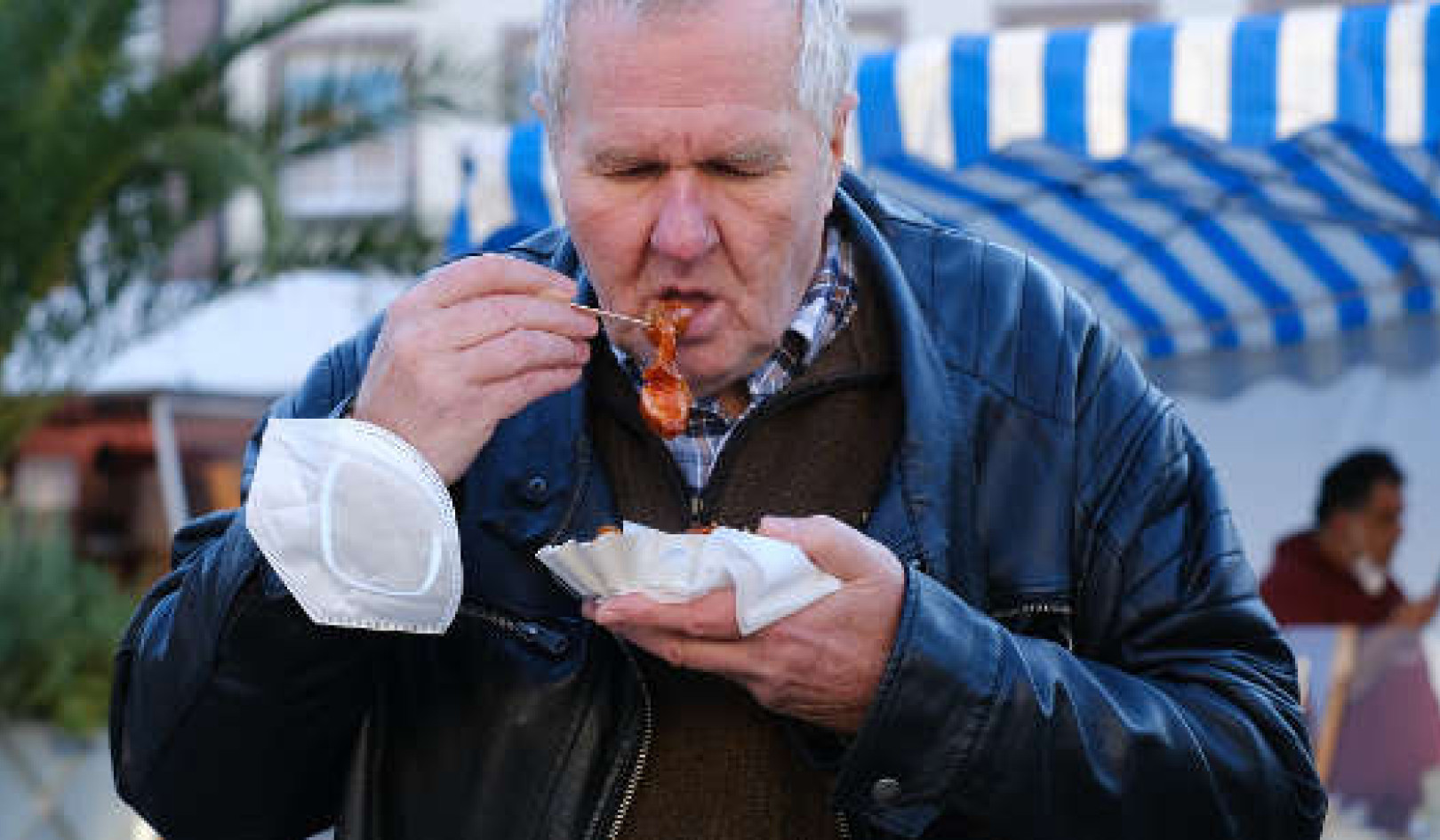
The condition of Post-Traumatic Stress Disorder (PTSD) first became well known after an alarming number of veterans returned from the Vietnam War with disturbing symptoms of emotional stress. These experiences might include “a sense of reliving the experience, illusions, hallucinations and dissociative flashback episodes including those that occur on awakening or when intoxicated, intense psychological distress at exposure to internal or external cues that symbolize or resemble an aspect of the traumatic event.”
In addition, the individual may have trouble sleeping, be irritable or prone to anger, have difficulty concentrating, and be easily startled. It’s as if the person suffering from PTSD is always expecting the traumas to reoccur and is therefore often anxious and wary.
More recently, veterans of the Gulf Wars and the wars in Iraq and Afghanistan have also displayed the symptoms of PTSD.
From Action in Iraq to PTSD at Walter Reed
In 2006, Raymond Hubbard’s unit of the Wisconsin National Guard was called up for action in Iraq. Just months after he arrived, under intense fire during a July 4th raid in Baghdad, Raymond was hammered with shrapnel that amputated his left leg below his knee and damaged his ability to use his right arm. His carotid artery was severed causing a massive stroke, and he spent three weeks in a coma. Both the stroke and the coma had caused permanent damage to his brain. In addition, he was unable to speak due to the effects of the stroke and damage to his vocal cords.
Raymond had grown up in a family of veterans. In fact, his father had been severely wounded 40 years earlier in Vietnam and had never fully recovered emotionally or physically. He died when Raymond was 14 from alcoholism and suspected complications from exposure to Agent Orange. He had been an abusive alcoholic and the home felt unsafe and terrifying for Raymond, who survived his turbulent teenage years with his beloved dog, Chunker by his side. “Chunker saved my life on more than one occasion when I felt suicidal,” Hubbard recalls, “by placing a lick on my face or begging for some play time.”
After emergency surgery at Landstuhl Hospital in Germany, Raymond was transferred to the Walter Reed Army Medical Center in Bethesda, Maryland. Overwhelmed by his losses, Raymond had trouble organizing his life, concentrating, speaking, and he descended into depression. He was on enormous quantities of pain killers, spending his days sleeping and fending off terrifying nightmares. Raymond knew he did not want to end up like his father and he wanted his children to grow up with a loving, gentle, healthy dad and husband. His injuries, however made him feel helpless.
Puppies Bring Healing to PTSD Veterans
One day, while lying in his hospital bed at Walter Reed, a Golden Retriever in a therapy dog vest entered his room with his trainer. Although Raymond could barely speak, the connection that he felt with the dog was immediate and profound. When the occupational therapist saw Raymond’s elated reaction, she suggested he contact the National Education of Assistance Dog Services (NEADS), a center that has helped hundreds of disabled individuals live more independently at home, work and at school to see if he would be eligible for one of their programs.
 Raymond was accepted into the NEADS program and given a black Labrador Retriever named Dace, which had been trained as a puppy by Barbara Goucher, a prisoner at the State Prison For Women in Framingham, Massachusetts. Dace was specifically trained to assist Raymond with his mobility disability, but with the training Raymond received during his two weeks at NEADS, he also learned how to task train Dace to assist him with his PTSD symptoms.
Raymond was accepted into the NEADS program and given a black Labrador Retriever named Dace, which had been trained as a puppy by Barbara Goucher, a prisoner at the State Prison For Women in Framingham, Massachusetts. Dace was specifically trained to assist Raymond with his mobility disability, but with the training Raymond received during his two weeks at NEADS, he also learned how to task train Dace to assist him with his PTSD symptoms.
Dace soon displayed her ability to assist Raymond with his PTSD symptoms. One day, as he was visiting The National Air Space Museum in Washington, he and his sons were watching an Omnimax film about jet fighter planes. When a rocket blew up on the screen, Raymond had a flashback of being attacked in Iraq and couldn’t breathe. He was gasping for air and about to pass out when Dace jumped up from his feet, nudging Raymond, licking his face and arms vigorously until he was able to breathe normally again and his tunnel vision evaporated.
The Journey of Healing for PTSD Veterans
Raymond still experiences episodes of paranoia and fear, but Dace has learned to help Raymond alleviate those feelings in numerous ways. “If I didn’t have Dace,” Raymond says, “I would be isolated in my home. She gets me out into the world and leads me into the veterans’ hospital rooms to empower other veterans by her presence. Dace was originally trained as my mobility service dog, but she wears so many more hats than that.”
For Hubbard, Goucher, and Dace it has been a long journey. Goucher is especially proud of the work she has been able to do with NEADS. “My troubled life had come full circle when I met a soldier who will be helped by Dace,” she says, “I have a better purpose. The dog contributed to that. It changed my life. It calmed me down. It was an honor to raise this dog for him.”
Dace has given Raymond independence and helped in the important work of his life by assisting him in his mission to educate other veterans about service dogs. Raymond’s dream growing up was to be a public speaker and now he travels across the country with Dace, educates other veterans about the NEADS program and the gift Dace has been in his life.
This article was excerpted with permission from the book:
 Healing Companions: Ordinary Dogs and Their Extraordinary Power to Transform Lives
Healing Companions: Ordinary Dogs and Their Extraordinary Power to Transform Lives
by Jane Miller.
Reprinted with permission of the publisher, New Page Books a division of Career Press, Pompton Plains, NJ. 800-227-3371. All rights reserved. ©2010. http://newpagebooks.com/
Click here for more info and/or to order this book on Amazon.
About the Author
 Jane Miller, LISW, CDBC, works in private practice as a clinical psychotherapist and licensed independent social worker, with a particular interest in holistic healing. She has lectured in a wide variety of settings, including many national and local organizations, schools, and dog-training facilities. More recently, Jane has consulted with NEADS (National Education for Assistance Dog Services), the Canines for Combat Veterans program for soldiers returning from combat in Iraq with post-traumatic stress, as well as other veterans organizations. She has appeared in the PBS program "Health Visions: Animals As Healers" and other local and national media. Visit her website at www.healing-companions.com
Jane Miller, LISW, CDBC, works in private practice as a clinical psychotherapist and licensed independent social worker, with a particular interest in holistic healing. She has lectured in a wide variety of settings, including many national and local organizations, schools, and dog-training facilities. More recently, Jane has consulted with NEADS (National Education for Assistance Dog Services), the Canines for Combat Veterans program for soldiers returning from combat in Iraq with post-traumatic stress, as well as other veterans organizations. She has appeared in the PBS program "Health Visions: Animals As Healers" and other local and national media. Visit her website at www.healing-companions.com


























